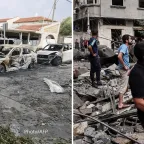International Humanitarian Law Bibliography
… traces the history of the definition of terrorism in international law and how it is … seeking to address biological weapons in a terrorism context. This analysis will recognize … selfdefence actions by Ukraine as ‘acts of terrorism’ shows that such …






